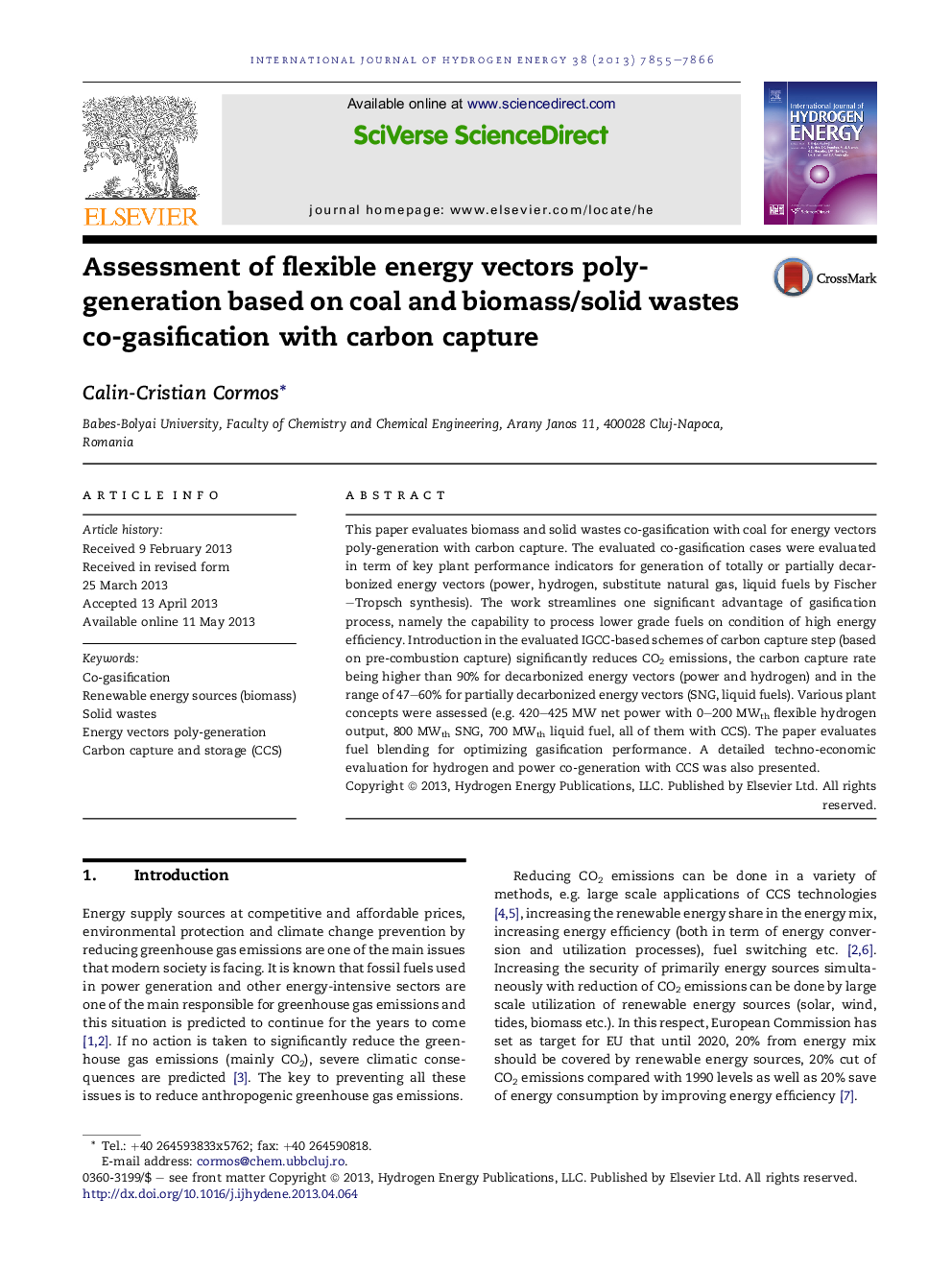| Article ID | Journal | Published Year | Pages | File Type |
|---|---|---|---|---|
| 1273641 | International Journal of Hydrogen Energy | 2013 | 12 Pages |
•Evaluations of co-gasification for flexible energy vectors poly-generation with CCS.•Co-gasification of coal with biomass and solid wastes.•Increasing the gasification performance based on fuel blending.•Energy vectors poly-generation as promising way to increase plant flexibility.
This paper evaluates biomass and solid wastes co-gasification with coal for energy vectors poly-generation with carbon capture. The evaluated co-gasification cases were evaluated in term of key plant performance indicators for generation of totally or partially decarbonized energy vectors (power, hydrogen, substitute natural gas, liquid fuels by Fischer–Tropsch synthesis). The work streamlines one significant advantage of gasification process, namely the capability to process lower grade fuels on condition of high energy efficiency. Introduction in the evaluated IGCC-based schemes of carbon capture step (based on pre-combustion capture) significantly reduces CO2 emissions, the carbon capture rate being higher than 90% for decarbonized energy vectors (power and hydrogen) and in the range of 47–60% for partially decarbonized energy vectors (SNG, liquid fuels). Various plant concepts were assessed (e.g. 420–425 MW net power with 0–200 MWth flexible hydrogen output, 800 MWth SNG, 700 MWth liquid fuel, all of them with CCS). The paper evaluates fuel blending for optimizing gasification performance. A detailed techno-economic evaluation for hydrogen and power co-generation with CCS was also presented.
